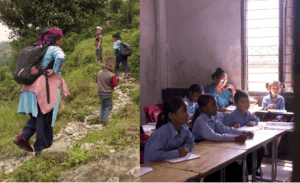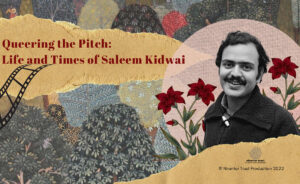Who is a caseworker? What was that one case that stayed with them? How do they deal with violence, both as a survivor and as a caseworker? What pushes them to step out everyday and work on cases of violence against women? In this episode, meet Kusum from Mahrauni, Uttar Pradesh. Kusum has been working with Sahjani Shiksha Kendra since 2008. Knowledge has strengthened her and she has a strong understanding of the law. But, she says, “I haven’t changed that much to be able to control my feelings to be honest. I do cry when I work on a case, but now I am able to differentiate between what’s right and wrong.”
In 2022, we started working with 12 caseworkers across Uttar Pradesh, locating them as creators of knowledge around violence. With them, we created a vocabulary around gender-based violence (GBV) emerging from the grassroots, which is now live as the Caseworker’s Dictionary of Violence. The lexicographers for this dictionary are from Lalitpur, Lucknow, and Banda, with days, nights and decades of working cases that may have disappeared from history, if it wasn’t for them.
The 12 caseworkers who have co-authored this Dictionary, intervene in situations of violence against women; murder, rape, abduction, child sexual abuse, dowry deaths and domestic violence. The caseworkers have emerged from the communities they work with, and have experienced violence in their own lives. They have learnt to be caseworkers by showing up, by doing extensive legwork, and by the occasional legal training and input.
In our series, Meet the Caseworkers, we spoke individually to these 12 caseworkers. They trace back their lives and times, their epiphanies, their regrets. They also share tools and strategies for other grassroot workers working with violence.




